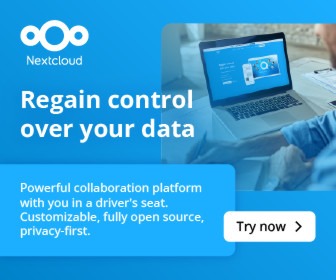Since the demise of Geek Feminism and the Ada Initiative, who’s supporting efforts to progress women’s rights in the open source community?

2009-2015 was the age of open source feminism. For six years, women talked about their lack of representation in free software, and organized for change. Then, suddenly, the movement fell almost silent, leaving far less than advocates had hoped.
Women in open source had been an issue in open source since the founding of LinuxChix by Deb Richardson in 1999. However, the motivation for greater organization was the FLOSSPOL study of open source in 2006, which is no longer available online although a few references remain. The study found that while women were 28% of those working on proprietary software, only 1.5% of those working on open source were women.
By 2009, speakers like Angie Byron and Alex Bayley were presenting these findings at conferences. Around the same time, Geek Feminism, an informal community blog and wiki of feminist events and definitions, went online, and when pornographic presentations and a sexist joke by Richard Stallman made headlines over the next few years, Geek Feminism contributors were quick to criticize them.
The loose movement received another boost in 2011 with the creation of the Ada Initiative by Valerie Aurora and Mary Gardiner. The non-profit group became best-known for drafting and promoting anti-harassment policies for conferences and organizations, as well as for ally-training and the invitation-only AdaCamp unconferences. The Ada Initiative also gained notoriety for getting a talk by Violet Blue canceled, which was widely seen as a misguided publicity stunt.
In 2015, the Ada Initiative began shutting down some of its services despite several years of successful fundraising. Aurora announced she would step down as director, and after a single trial replacement the group decided that replacing her was unlikely. Exactly what happened has never been explained, but one supposition is that character differences were responsible for the end of the Ada Initiative. Given that Aurora became a consultant teaching ally training to men, possibly a disagreement over policy was involved, with other participants preferring to focus on services for women.
Many of those who contributed to the Geek Feminism site were also involved in the Ada Initiative. Over the next couple of years, the Geek Feminism blog slowly discontinued, and participants drifted away and became less active. At some point in 2015 or 2016, any coordinated feminist movement within open source ceased to exist. Considering the hostility of some opponents, burnout may have been a factor.
The Aftermath
Although the Ada Initiative raised well over half a million dollars, the movement — if it can be called that — left a surprisingly small legacy. Today, its major contribution to open source is the widespread anti-harassment policies it initiated, but whether those policies are only cosmetic or actually deter harassment remains unclear.
The strongest argument in favor of anti-harassment policies is that they serve as a deterrence. However, considering the circumstances in which harassment takes place — often in private, and involving drunkeness — whether any predator is likely to remember or worry about a policy seems questionable.
Whatever the case, these policies remain the most important legacy of the Ada Initiative in particular. Today, few organizations are without such a policy, and many policies are based on a template released by The Ada Initiative.
That legacy seems both ironic and minor. When I was interviewing the founders of the Ada Initiative when it first began, anti-harassment policies were discussed as a first step to be accomplished before moving on to more important matters. Apparently somewhere along the line, anti-harassment policies became an end in themselves. Moreover, the movement disintegrated just as it was positioned to move on to other matters.
What is left are major issues that are still barely addressed. Since the end of geek feminism, few women have emerged as project leaders. Open source boards of directors possibly average two or three women out of eight or more members. More importantly, issues like pay equity over an entire career, maternity leave, and day care are mostly ignored. In fact, no reliable picture has ever been collected of these concerns in open source companies or conferences.
Nor does there seem much chance that these concerns will be addressed any time soon. Unfortunately, another strong legacy of the geek feminist revolution is a strong backlash from those who see feminist concerns as incompatible with open source’s alleged meritocracy.
Perhaps the low point in this backlash was Eric S. Raymond’s claim that the Ada Initiative was a conspiracy with a goal of seducing Linus Torvalds and other open source celebrities for the purpose of charging them with sexual assault. Exactly what motivations were supposed to be for this conspiracy was never explained by Raymond. Nor did he notice that, when he made the accusation, that the Ada Initiative had disbanded months before. The mere fact that geek feminists challenged his picture of open source appeared to be enough. His claim would be absurd, except for the fact that many have faith in his words, and it has left a strong opposition to any future feminist efforts.
Geek feminism was a worthy goal, and could have had a welcome impact on open source. If nothing else, encouraging women could have resulted in more participants in development projects. Instead, its members dispersed with much of their work not only left undone but also unapproached. What is left appears to be minor improvements. However, it is difficult to be sure, because no one seems to be tracking such concerns. Nor is anyone likely to. Today, the concerns of open source feminism remain as relevant as when the movement stopped functioning.
Bruce Byfield has been involved in FOSS since 1999. He has published more than 2000 articles, and is the writer of “Designing with LibreOffice,” which is available as a free download here.




I read your link about the Violet Blue cancellation – What happened with my Security BSides talk – but I have to say “Blue” kind of lost me when it got to the discussion of “Date Rape Drug”. and “Blue” described his conversation:
Blue: “Okay. In the talk I do cover ‘date rape’ drugs, and I explain their actions and how they’re dangerous.”
Organizer: “Do you describe how to use date rape drugs? They said that if you are going to tell people how to use date rape drugs then it’s the same as rape, and there’s going to be a problem.”
Then Blue pulled out without answering the question. That’s a cowardly cop out.
Ada and the organizer did the right thing. They saved Blue from himself, and he got pithy about it. My honest take on reading Blue’s own words.
Let me try an analogy: “Harm Reduction” in the sense it is being used is like taking your friends, the whole family, and anybody else who want to come to a shooting range, to learn safe gun usage. If they are going to use guns, it’s makes sense. (Even though I don’t use or want to use ordinary guns, that makes perfect sense to me).
On the other hand, publicly promoting “date rape drugs” is not just a simple extension of that safety concept, it is like introducing assault weapons into the mix.
A little bit of research show that (1) “date rape drugs” is actually a wide term covering several substances, there commonality being “date rape”. (2) Use of “Date rape drugs” for “date rape” is pretty widespread.
It doesn’t seem unreasonable to me to request that “date rape drugs” not be promoted as normal at a public conference.
“Blue” could have simply removed the reference from his material and the organizer would have approved – Blue himself chose not to negotiate that route. Whose was the publicity stunt?